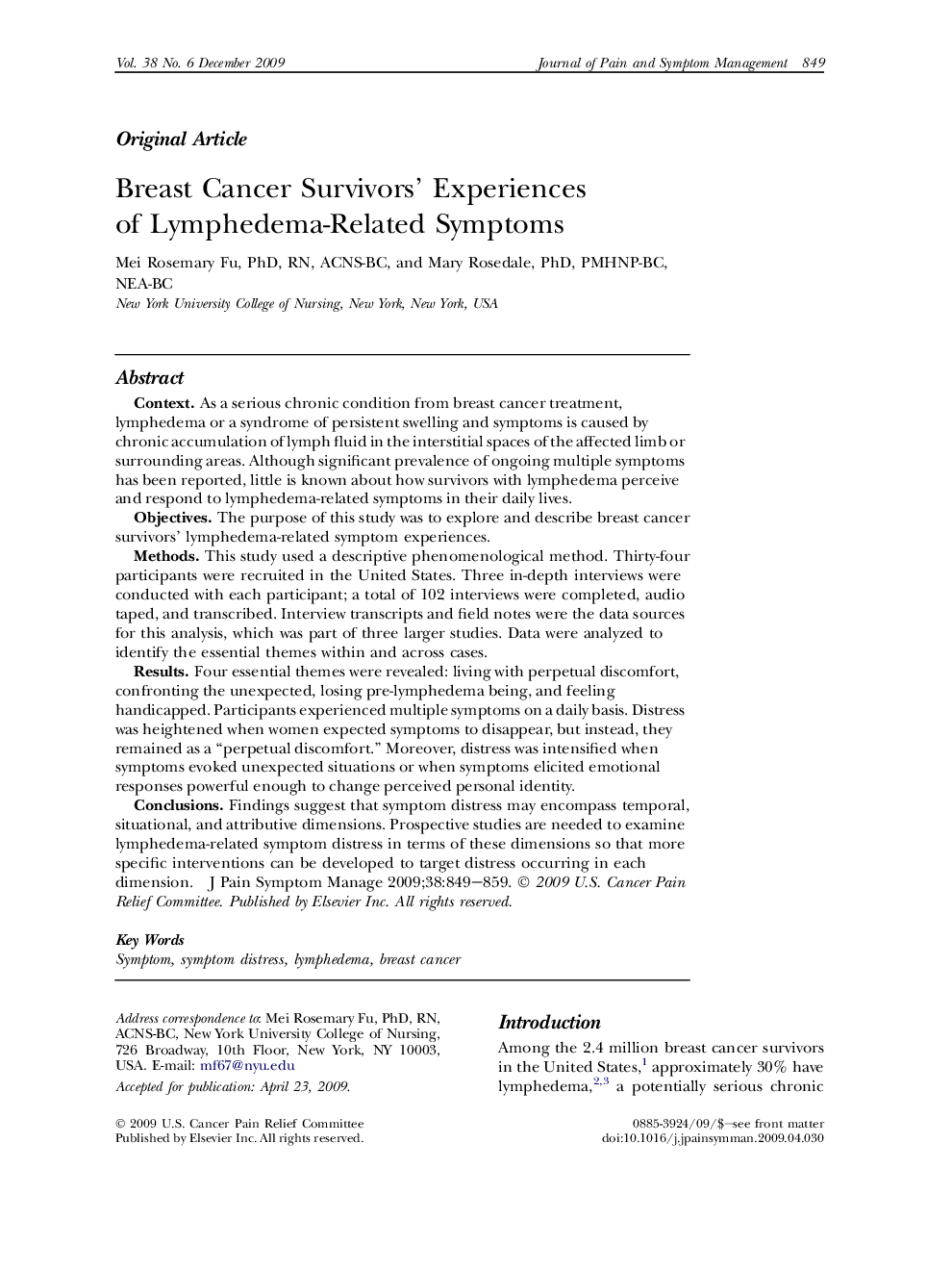| Article ID | Journal | Published Year | Pages | File Type |
|---|---|---|---|---|
| 2730052 | Journal of Pain and Symptom Management | 2009 | 11 Pages |
ContextAs a serious chronic condition from breast cancer treatment, lymphedema or a syndrome of persistent swelling and symptoms is caused by chronic accumulation of lymph fluid in the interstitial spaces of the affected limb or surrounding areas. Although significant prevalence of ongoing multiple symptoms has been reported, little is known about how survivors with lymphedema perceive and respond to lymphedema-related symptoms in their daily lives.ObjectivesThe purpose of this study was to explore and describe breast cancer survivors' lymphedema-related symptom experiences.MethodsThis study used a descriptive phenomenological method. Thirty-four participants were recruited in the United States. Three in-depth interviews were conducted with each participant; a total of 102 interviews were completed, audio taped, and transcribed. Interview transcripts and field notes were the data sources for this analysis, which was part of three larger studies. Data were analyzed to identify the essential themes within and across cases.ResultsFour essential themes were revealed: living with perpetual discomfort, confronting the unexpected, losing pre-lymphedema being, and feeling handicapped. Participants experienced multiple symptoms on a daily basis. Distress was heightened when women expected symptoms to disappear, but instead, they remained as a “perpetual discomfort.” Moreover, distress was intensified when symptoms evoked unexpected situations or when symptoms elicited emotional responses powerful enough to change perceived personal identity.ConclusionsFindings suggest that symptom distress may encompass temporal, situational, and attributive dimensions. Prospective studies are needed to examine lymphedema-related symptom distress in terms of these dimensions so that more specific interventions can be developed to target distress occurring in each dimension.
